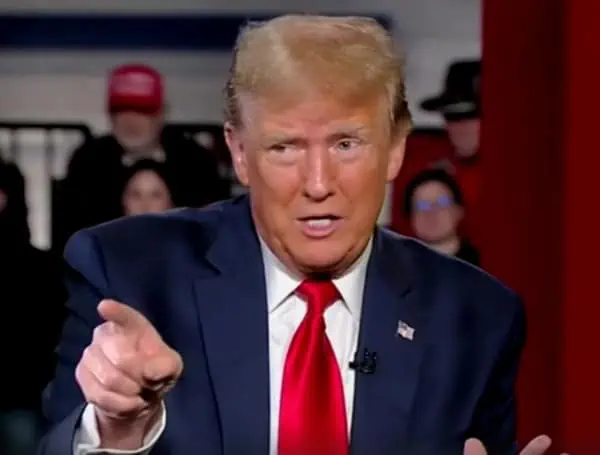
Supreme Court justices on Thursday appeared to signal they may hand former President Donald Trump a partial victory in his presidential immunity case by possibly sending it back to a lower court.
Trump’s attorney Dean John Sauer argued that presidents should have constitutional immunity from prosecution for official acts conducted during their presidency. Chief Justice John Roberts, as well as justices Neil Gorsuch and Brett Kavanaugh, brought up the potential for the Supreme Court to send the case back to the United States Court of Appeals for the District of Columbia , which could delay a trial on Trump’s election interference case until at least after the election, according to Politico.
A three-judge appeals court panel unanimously rejected Trump’s immunity claim in a Feb. 6 ruling in the case originating from an indictment Smith secured against the former president over his efforts to contest the results of the 2020 election.
Read: Vice President Kamala Harris To Campaign In Florida
Roberts pressed Department of Justice (DOJ) counselor to Smith, Michael Dreeben, asking if the appeals court and the DOJ were arguing that Trump lacked immunity by default because he had been indicted.
“They said that there is no reason to worry because the prosecutor will act in good faith and there is no reason to worry because a grand jury will have returned the indictment,” Roberts said. “Now, you know how easy it is in many cases for a prosecutor to get a grand jury to bring an indictment and reliance on the good faith of the prosecutor may not be enough in some cases, I‘m not suggesting here, so if it’s tautological, if those are the only protections the court gave that is no longer your position, you are not defending that position, why shouldn’t we send it back to the court of appeals or issue an opinion making clear that that’s not the law?”
“Well, I am defending the court of appeals’ judgment and I do think there are layered safeguards the court can take into account that will ameliorate concerns about unduly chilling presidential conduct,” Dreeben responded. “That concerns us. We are not endorsing a regime that we think would expose former presidents to criminal prosecutions in bad faith, for political animus, without adequate evidence. A politically driven prosecution would violate the Constitution… It’s is not something within the arsenal of prosecutors to do.”
Moreover, Justice Amy Coney Barrett indicated the possibility of establishing a test for presidential protection from prosecution, which would not quite be absolute immunity, which could also lead to delays if lower courts rule on it, according to Politico.
Justice Clarence Thomas questioned Dreeben about why no other president has faced prosecutions before Trump.
“Over the not-so-distant past … certain presidents have engaged in various activity, coups or operations like Operation Mongoose, when I was a teenager, and yet there were no prosecutions,” Thomas said. “Why? If what you’re saying is right, it would seem that would have been ripe for criminal prosecution of someone.”
“So Justice Thomas, I think this is a central question,” Dreeben responded. “The reason why there have not been prior criminal prosecutions is that there were not crimes.”
Read: Jonathan Turley Says Alvin Bragg Is Making Trump’s Immunity Case ‘For Him’
Justice Elena Kagan characterized Sauer’s argument that a president may have criminal immunity for staging a coup after she presented him with a hypothetical as “sound[ing] bad,” which Trump’s attorney agreed with.
“It certainly sounds very bad, and that’s why the framers have a whole series of structural checks that have successfully, for the last two hundred and thirty-four years, prevented that very kind of extreme hypothetical. And that is the wisdom of the framers,” Trump’s attorney argued.
Help support the Tampa Free Press by making any small donation by clicking here.
Android Users, Click To Download The Tampa Free Press App And Never Miss A Story. Follow Us On Facebook and Twitter. Sign up for our free newsletter.

